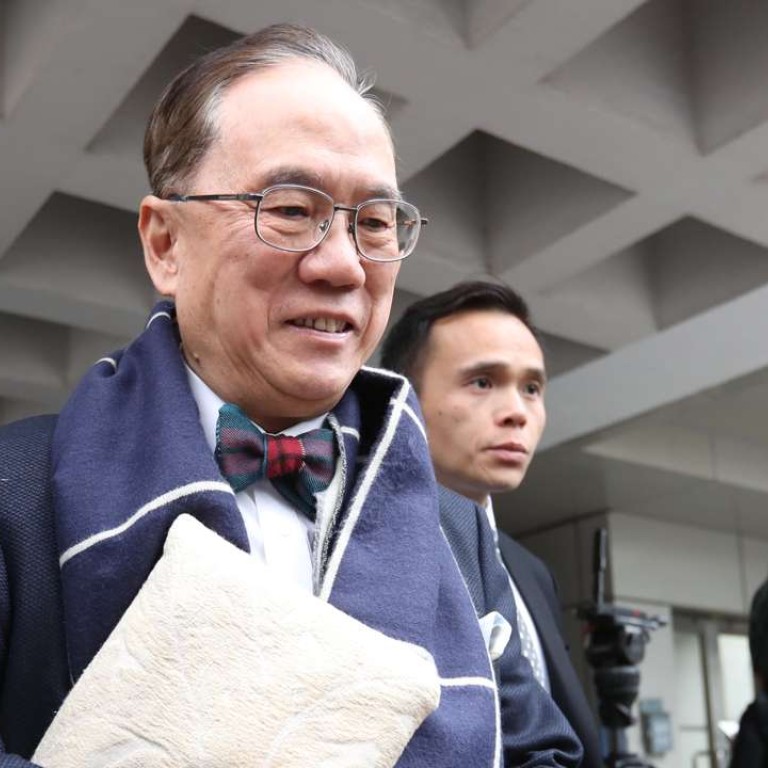
Hong Kong leaders should follow Executive Council transparency rules, according to 1997 record read at Donald Tsang trial
Minutes of pre-handover meeting appear to contradict earlier evidence that chief executives only need to ‘voluntarily observe’ transparency rules
The city’s leader should be bound by the same conflict of interest rules as the Executive Council, requiring they declare any personal interests before debating an issue, the jury at the bribery trial of former chief executive Donald Tsang Yam-kuen heard on Monday.
That conclusion only appeared in records of a 1997 Executive Council meeting read in court, offering a rare glimpse into discussions on transparency at the top of government as Hong Kong’s return to China neared.
And it contradicts evidence given just days earlier that Tsang only had to “voluntarily observe” rules requiring Exco members to declare investments or financial interests.
In the second week of Tsang’s High Court trial for bribery and misconduct in office, the court heard evidence from confidential minutes of a 1997 Exco meeting, where members discussed the standards of accountability for the city’s leaders.
According to the record, read out by prosecutor David Perry QC, members agreed it would “be desirable” for the chief executive to declare interests, as this would avoid “unnecessary criticisms”.
Witness Kinnie Wong Kit-yee, clerk to Exco since 2012, told the court there was a public register for members to declare personal interests, and a confidential register for financial interests.
It is the “personal responsibility” of Exco members to declare any interests in a topic that could be seen as a conflict of interest before the council discusses it, Wong said through a court translator.
The court also heard how Tsang adopted his own rules on invitations from wealthy friends to use their private yachts and jets, and that even Choi didn’t know the unwritten rule existed until a few months before Tsang finished his term as chief executive in 2012.
Tsang, 72, has pleaded not guilty to a count of accepting an advantage as chief executive and two others of misconduct in public office.
The prosecution alleges that while he was chief executive – and Exco president – he was negotiating with a major shareholder of radio station Wave Media, Bill Wong Cho-bau, over a luxurious three-storey Shenzhen penthouse he intended to retire in, and which Wong owned.
During his time as chief executive, Tsang approved applications by Wave Media for a digital broadcasting licence.
The prosecution says Tsang failed to declare his dealings with Wong while discussing Wave Media, despite making 69 declarations about other personal interests during his term.


